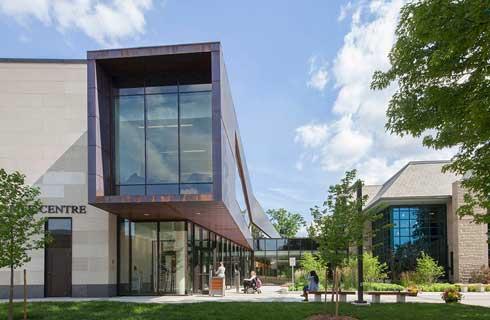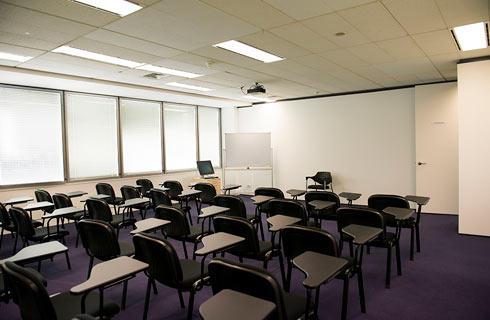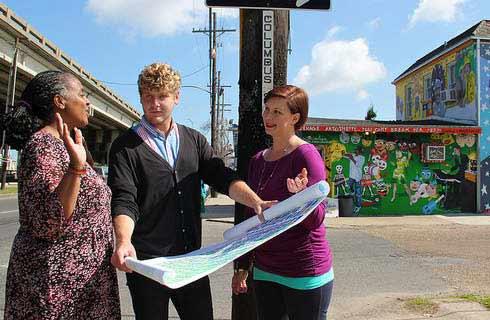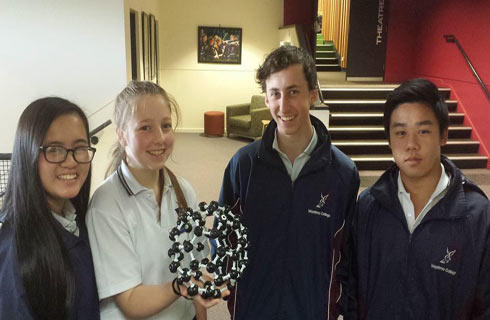儿童和家庭发展文学学士
Bachelor of Arts in Child and Family Development

学历文凭
Bachelor Degree

专业院系
Department of Special Education and Child Development

开学时间

课程时长

课程学费

国际学生入学条件
IDP—雅思考试联合主办方

雅思考试总分
6.0
- 雅思总分:6
- 托福网考总分:70
- 托福笔试总分:160
- 其他语言考试:Duolingo English Test (EDT): 105 or higher
CRICOS代码:
申请截止日期: 请与IDP联系 以获取详细信息。
课程简介
The B.A. degree in Child and Family Development prepares graduates to work in educational and related settings that serve infants, toddlers, preschoolers, and kindergartners with and without disabilities, and their families. The program qualifies graduates for the Standard Professional 1 (SP1) Professional Educator's License in birth-kindergarten (B-K) education.<br>Graduates of the program are prepared to meet the North Carolina Professional Teaching Standards and the ten Interstate New Teachers Assessment and Support Consortium (INTASC) Standards for new teachers in Content Pedagogy, Student Development, Diverse Learners, Multiple Instructional Strategies, Motivation and Management, Communication and Technology, Planning, Assessment, Reflective Practice, and School and Community Involvement. Candidates have specific coursework and clinical experiences in a variety of settings in order to learn and apply evidence-based knowledge and practices in the field of early childhood development and education.
相关申请
 预科
预科 奖学金
奖学金 实习机会
实习机会 在校学习
在校学习 跨境学习
跨境学习 校园授课-线上开始
校园授课-线上开始 在线/远程学习
在线/远程学习
开学时间&学费
学费信息仅供参考,请与IDP联系以获取详细信息
| 开学时间 | 时长 | 学费 | 地点 |
|---|
关于北卡罗来纳大学夏洛特分校

北卡罗来纳大学夏洛特分校 (University of North Carolina at Charlotte,简称:UNC Charlotte 或UNCC),是北卡罗来纳大学教育系统下一综合研究型性大学,位于北卡罗来纳州的金融中心夏洛特,是夏洛特市最著名的学府,科研教学和师资力量雄厚。夏洛特市是一个文化集锦的地方,又是全美第二大金融中心和美国最重要的商业领域。 北卡罗来纳大学系统和加州大学系统,目前被誉为是全美最优秀的大学系统。北卡罗来纳大学夏洛特分校成立于1946年,它是北卡罗来纳大学系统的16所分校中的第4大分校(位于UNC Chapel Hill, NCSU, UNC Greensboro之后)。该校共设有9个学院,可提供18个博士专业、62个硕士专业和90个本科专业,所有专业均通过国家级鉴定。在校学生超过25000人。UNCC设有语言培训中心(ELTI),该中心1978年成立,为准备进入美国大学就读的国际学生快速习惯美国文化、掌握语言技能和学术研究技巧提供周到的辅导培训课程。UNCC可为符合条件的国际学生颁发有条件录取通知。 学校环境优美,科研和教学设备先进,设施齐全,科研教学和师资力量雄厚,是一所有着浓厚文化气息和良好学习氛围的现代化综合性大学。该校图书馆藏书130万册,为夏洛特市最大的图书馆,为学生查阅资料提供了便利条件。 2008年末美国总统大选前夕,奥巴马曾在该校作最后的竞选宣传。
本校相关课程
其他相关课程

荣誉儿童发展学士
 圣力嘉学院
圣力嘉学院学历文凭
Bachelor Degree with Honours
开学日期
课程费用总额


儿童和青少年保健高级文凭
 尼亚加拉学院
尼亚加拉学院学历文凭
Bachelor Degree
开学日期
课程费用总额


儿童和青少年保健高级文凭
 凯布莱恩学院
凯布莱恩学院学历文凭
Bachelor Degree
开学日期
课程费用总额


社区服务和儿童研究基金会证书
 德恒学院
德恒学院学历文凭
Bachelor Degree
开学日期
课程费用总额


社会工作学士-儿童福利
 菲莎河谷大学
菲莎河谷大学学历文凭
Bachelor Degree
开学日期
课程费用总额


儿童福利证书
 北不列颠哥伦比亚大学
北不列颠哥伦比亚大学学历文凭
Bachelor Degree
开学日期
课程费用总额










 美国
美国





